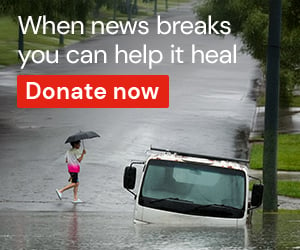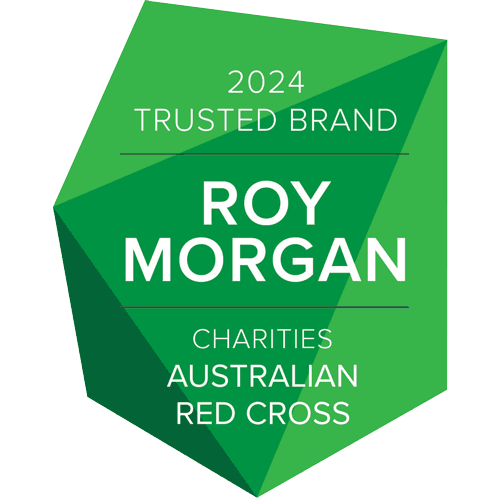
Heatwaves and hot weather
Heatwaves and hot weather have caused more deaths in Australia than any other disaster. Here's how you can beat the heat.
Get in the know
- Learn about the risks and potential impacts of extreme heat in your area, including its effects on you and your loved ones.
- Visit your state or territory’s health authority to learn the signs of heat stress, heat exhaustion and heat stroke.
ACT | NSW | NT | QLD | SA | TAS | VIC | WA - You can also speak to your doctor about how heat might affect you including precautions you can take, particularly if you have a health condition or chronic illness. If you take medication, ask how to store it during a heatwave.
- Download the Red Cross First Aid app for the most up-to-date first aid information anytime, anywhere.
- Check the daily forecast and get to know the Bureau of Meteorology’s (BOM) heatwave categories, forecasts and warnings at bom.gov.au/heatwave, on the BOM Weather app or the telephone audio warning service (1300 659 215).
Get connected
- Identify your support network – family, friends, neighbours, or a caregiver — who can help you before or during a heatwave. This may include tasks like adjusting your air-conditioning, closing blinds, doing your shopping, and checking in on you.
- Make plans with your support network about what you will do if you lose power during a heatwave. Identify a location you can go to stay cool and decide how you'll let your support network know where you are.
- Write down your important numbers (doctors, support network, care agencies, electricity company) so they are easily accessible during a blackout.
- Heatwaves can also make mental health concerns worse. Keep numbers of health services such as Health Direct 1800 022 222 and Lifeline 13 11 14 close by.
Get organised
- Prepare your home to make it cooler where possible, e.g. installing fans, or shade cloths. For pre-existing fans and air conditioners, make sure they have been serviced and are working well.
- Consider buying personal cooling items, such as an ice vest or small fans. Get a cooling bag for water and medications.
- Some medical conditions can get worse in extreme heat. Make sure your conditions are well managed and you have a plan in place for when a heatwave or blackout occurs.
- Plan ahead to make sure you have enough supplies, such as food, water and any medication required.
- Make a plan for any pets or animals and ensure they have enough food and water and a cool place to shelter during a heatwave or a blackout.
- Investigate public locations in your local area where you could go to stay cool, like community centres, libraries, movie theatres.
Get packing
- Pack essentials for a few days at home without essential services.
- Also consider items you'd want if you have to leave home unexpectedly.
- Refer to the Get Packing checklist for useful suggestions during a heatwave and blackout.
- Consider including torches, power banks, battery-powered fans, first aid kits, water, and non-perishable foods.
- Stay inside and keep out of the heat as much as possible. Plan to do most of your activities early or late in the day to avoid being outside during the hottest hours.
- Avoid sport and heavy exercise during peak hours of the day.
- Drink plenty of fluids to stay hydrated, even if you don’t feel thirsty.
- Keep your home cool by using external shade cloths or blinds to shield the inside of the house from direct sunlight.
- Where possible use a combination of air conditioning and fans to keep certain rooms in the house cool. Electric fans can be an effective method of cooling if air conditioning is not available.
- If not using air conditioning, open windows during the cooler parts of the day and allow ventilation between rooms.
- Take cool showers or baths, splash yourself with cold water, or use a cool damp cloth to cool down.
- If it's too hot at home, go to an air-conditioned shopping centre, community centre, library or your local swimming pool.
- Avoid direct exposure to the sun where possible and protect yourself with appropriate clothing (loose-fitting, lightweight and light-coloured).
- Do not leave children or animals in parked vehicles.
- Keep in touch with friends, neighbours and relatives, particularly if they’re unwell or isolated.
Take notice of your health, including your energy levels mood and ability to think and plan. If you notice negative changes take action to cool down and seek support from caregivers, crisis lines, and health providers.
If you or someone you know becomes unwell during a heatwave, call 000 immediately. Heat stroke is a life-threatening emergency and can cause a person to collapse or fall unconscious.
file_download Download the How to prepare for a heatwave fact sheet.
Charity donations of $2 or more to Australian Red Cross may be tax deductible in Australia. Site protected by Google Invisible reCAPTCHA. © Australian Red Cross 2025. ABN 50 169 561 394


